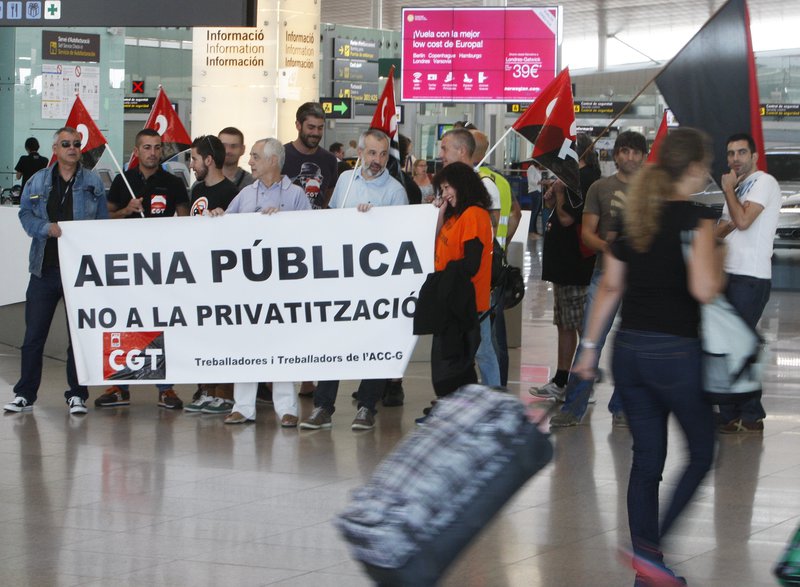Tribune
brett hetherington. bretthetherington.net
Why go the public way? (Part two)
When I was much younger my mother used to tell me that one day if I ever needed a pay raise I should just go and ask my boss for one. In the 1950's when she was at work, before having my brothers and I, this might have worked.
The first (and last) time I tried the technique of simply asking for an increase in my pay I was unceremoniously sacked. I had been paid between 20 and 21 euros per hour over four years working as a high school teacher of three different subjects at an international school near the wealthy coastal resort town of Sitges and I had become, like my most of my colleagues, frustrated at also doing hour after hour of unpaid labour. Teachers in the Spanish and Catalan public education system are routinely criticised, sometimes legitimately so, but their conditions of work mean that they cannot be unfairly fired from their jobs, as I once was.
Of course, it's not only public school employees and civil servants that benefit from the protection that the state can give. A doctor or nurse with security of tenure has one less source of stress and therefore is more likely to do their job better - patients and their families may well receive good care at least partly due to the fact that they are in the hands of people who have the reassurance of employment that cannot be terminated by a short-tempered employer. Personally, this is just one reason why I think government health care is preferable to private and my experiences with both kinds of treatment have so far backed this up.
It's also the case that privatisation - governments selling parts of the public sector to private companies - has largely been disastrous for users of services that were formally run by government organisations. The company behind Britain's first privately run hospital recently said it planned to pull out of its contract but in an extraordinary piece of irony, blamed government budget cuts for making it's emergency department too busy...and naturally less profitable.
The railway network in the UK is a very clear example of how after privatisation prices can skyrocket, while trains are more crowded and late in arriving - regardless of which private firm is operating the line. Since assistance to job seekers in that country was palmed off to various companies, some employees have claimed that they scored “brownie points for cruelty” to the unemployed and were constantly pressured to impose 'benefit sanctions' (meaning cuts to monthly payments) on even the sick and disabled for no good reason.
In Australia, after the telephone system was sold off a large number of rural families were told that they were not as deserving as others to have telephone lines, because they were less “economically-viable” living in small towns. It is a cast-iron rule of economic 'rationalism' that people can be 'rationalised' just like stock.
Some governments are working against privatisation though. Late last year it was reported that Catalan officials are seeking legal tools that might allow them to undermine Spain's Rajoy administration in it's plan to privatise state-owned airport operator Aena, which runs El Prat airport. As well, the new national government in Greece has announced that it is halting the privatisation of both the electricity grid and Athens' port at Piraeus. It may be that citizens across Europe are again starting to see the merits of going the public way.

